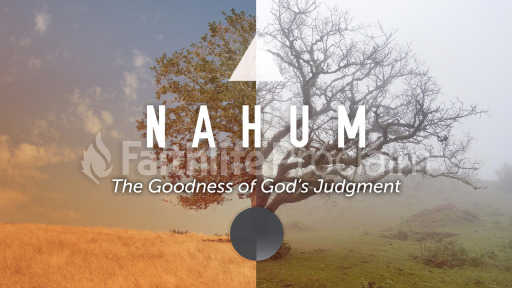A Word Picture: God's Good Judgment Revealed

Look! Take note! The messenger who brings the word of salvation and deliverance has appeared! See him on the ridge of the nearby mountains? He has run a long distance bringing the glad tidings!
I built a pillar over against his city-gate, and I flayed all the chief men who had revolted, and I covered the pillar with their skins; some I walled up within the pillar, and some upon the pillar on stakes I impaled, and others I fixed to stakes round about the pillar; many within the border of my own land I flayed, and I spread their skins upon the walls; and I cut off the limbs of the high officers, of the high royal officers who had rebelled. (lines 89ff.)
Many captives from among them I burned with fire, and many I captured alive. From some I cut off their hands and their fingers, and from others I cut off their noses and their ears … and the eyes of many men I put out. I made one heap of the living, and another of the heads, and I bound their heads to vines round about the city. Their young men and maidens I burned in the fire.
I. God is the only source of deliverance which He provides through judgment. (1:15)
So this message of Nahum is a glorious one! Deliverance shall come from the oppressor of God’s people by the sovereign intervention of God, even though the sin of God’s people had brought them into their calamitous state. How glorious will be that coming deliverance.
